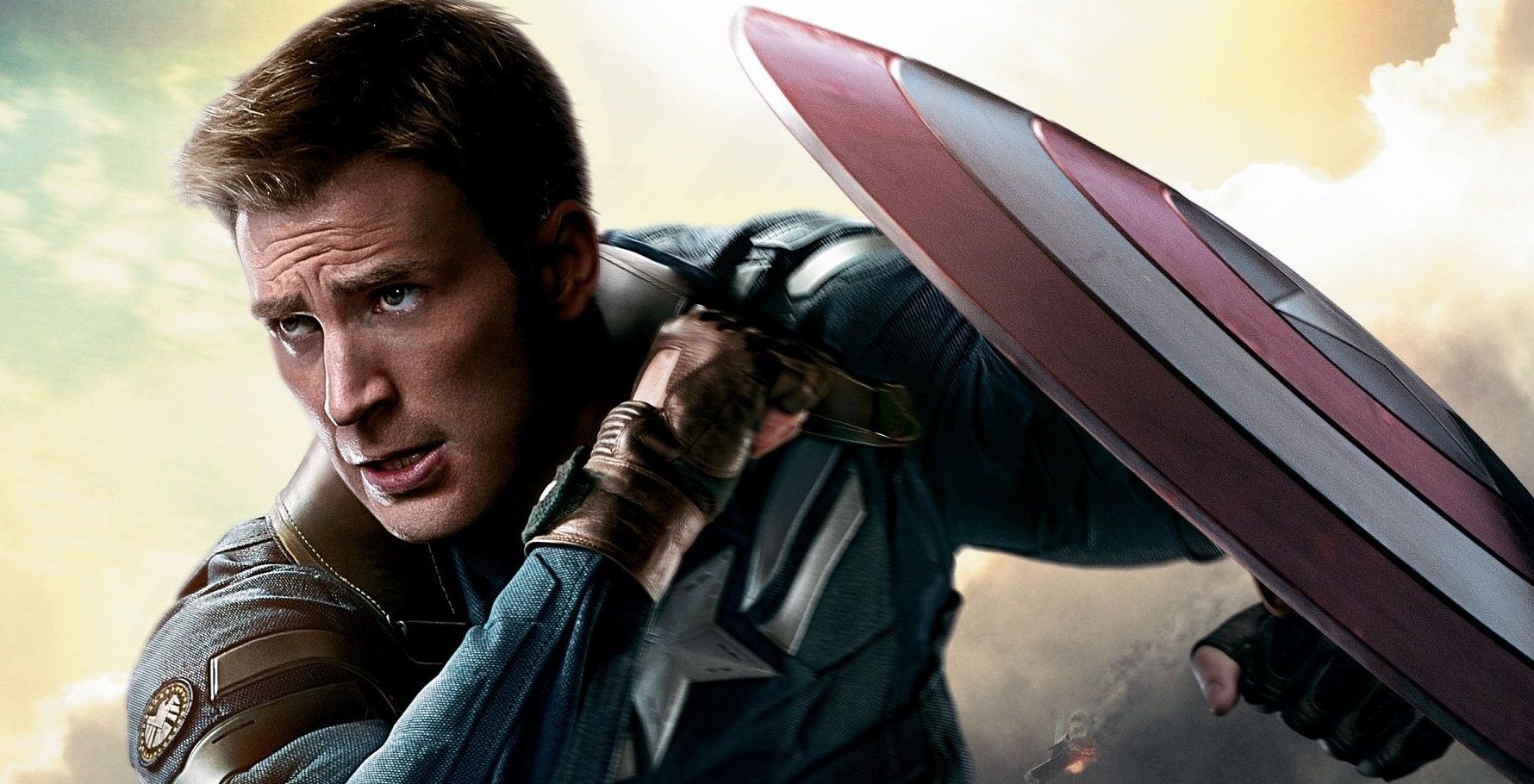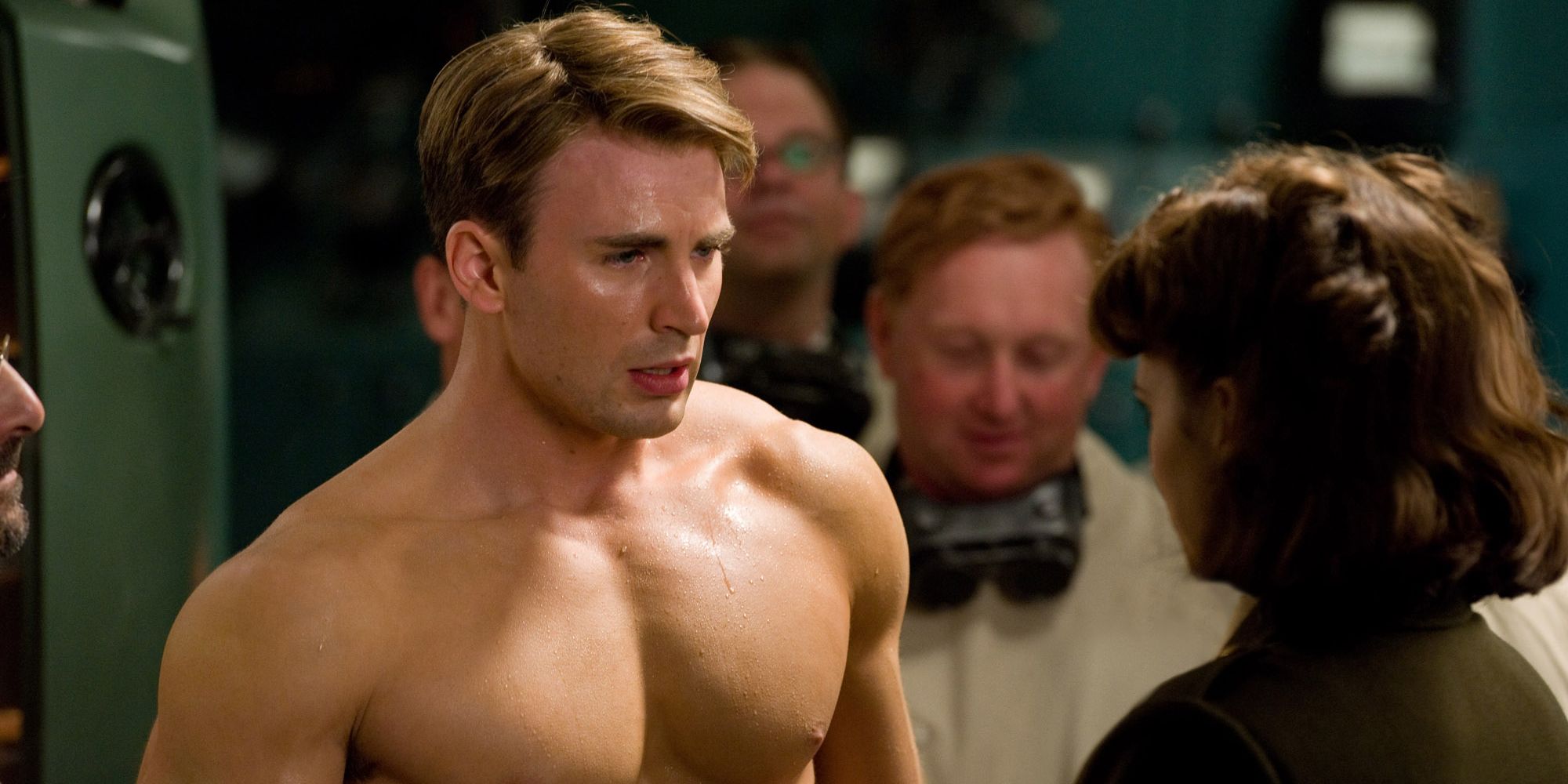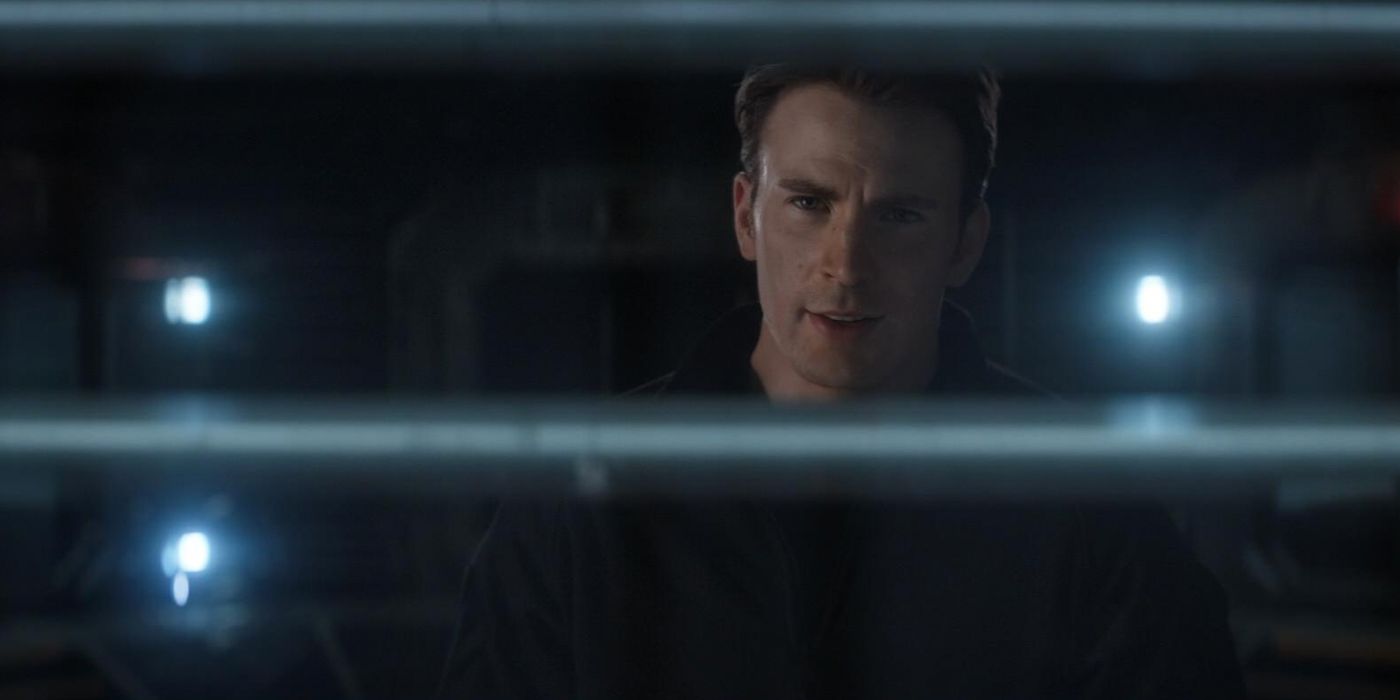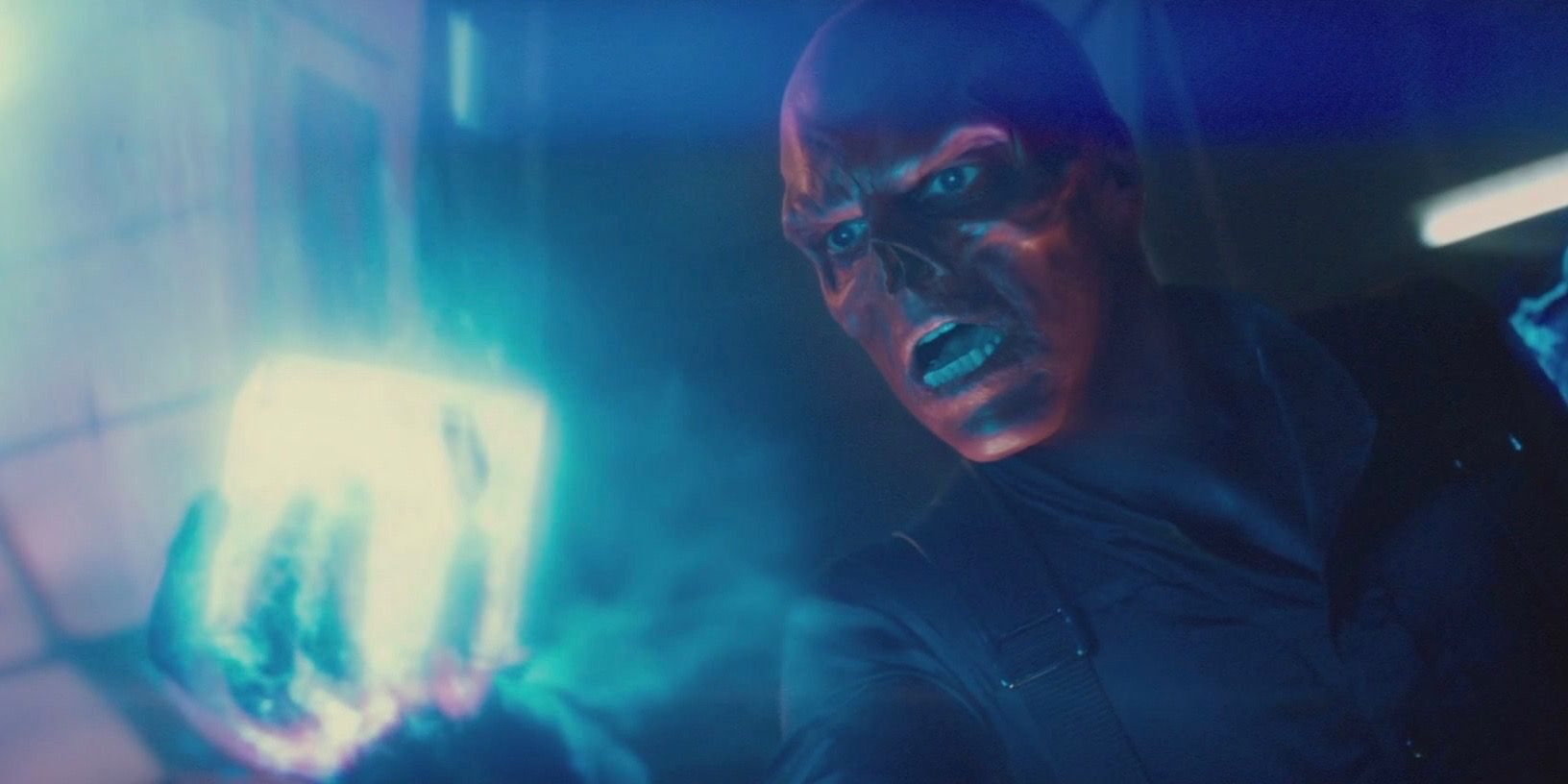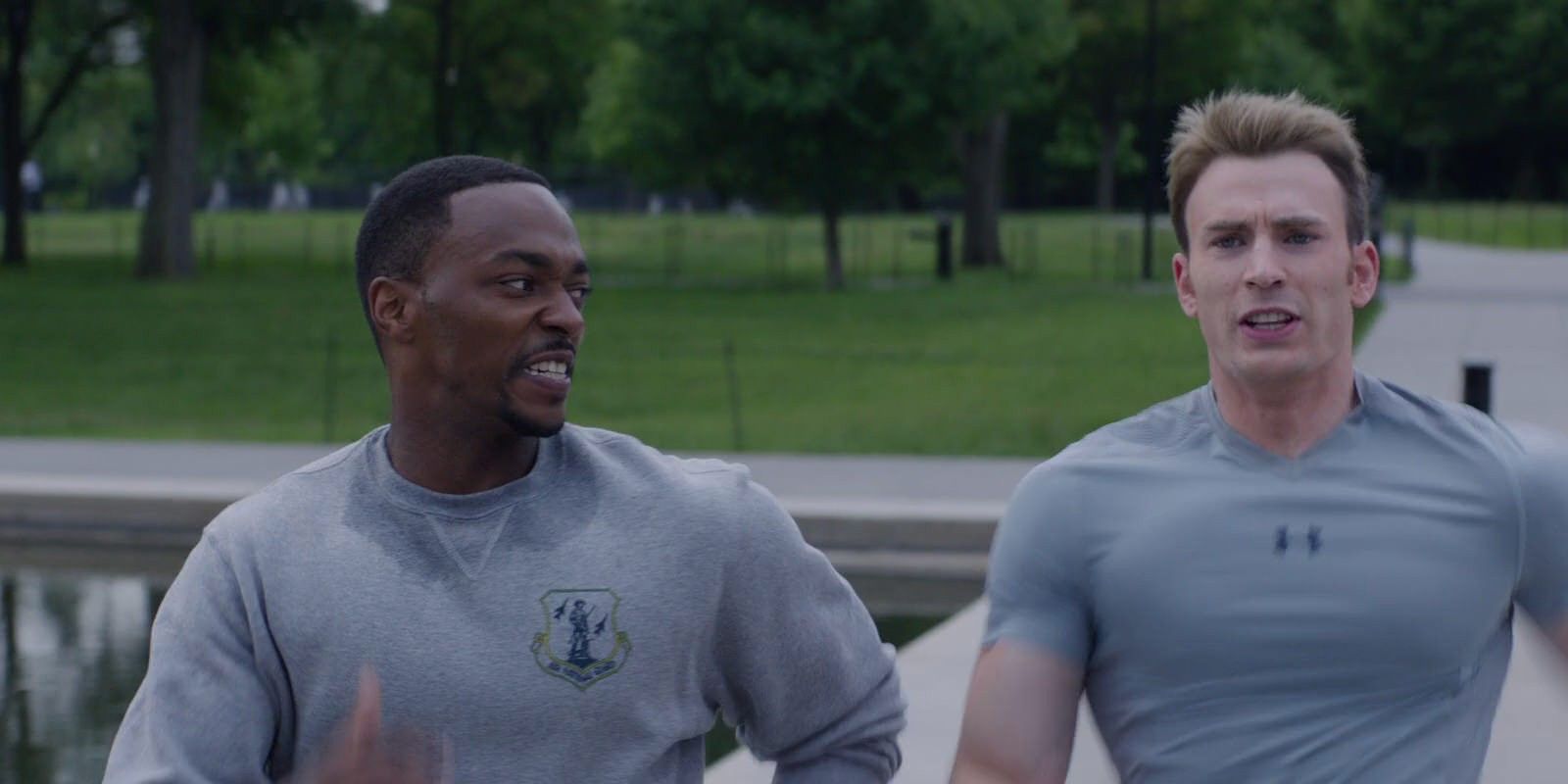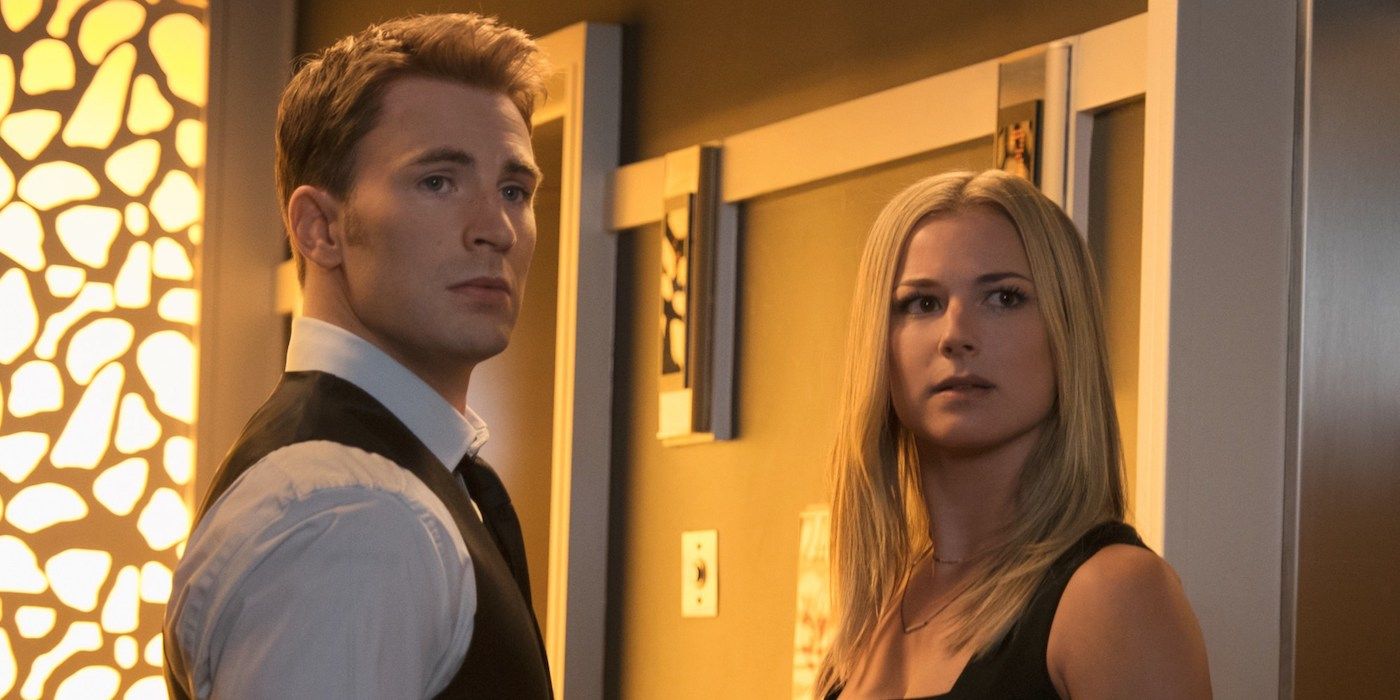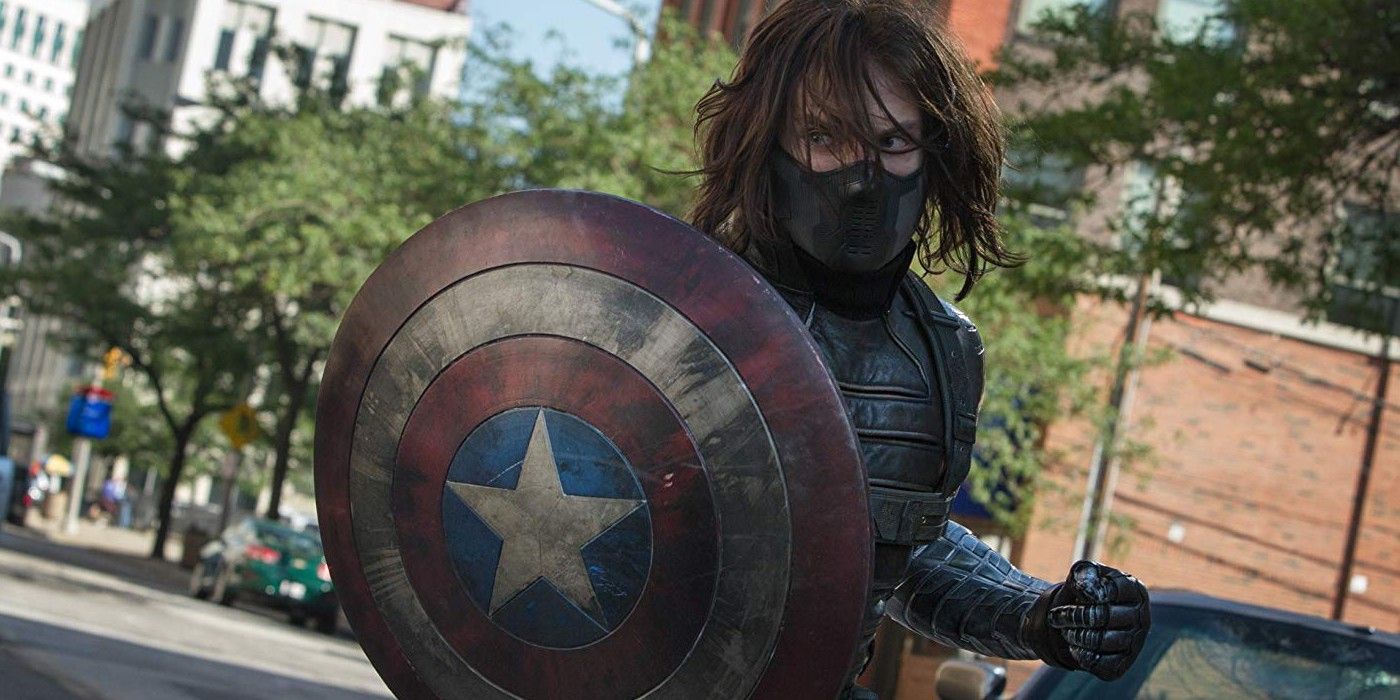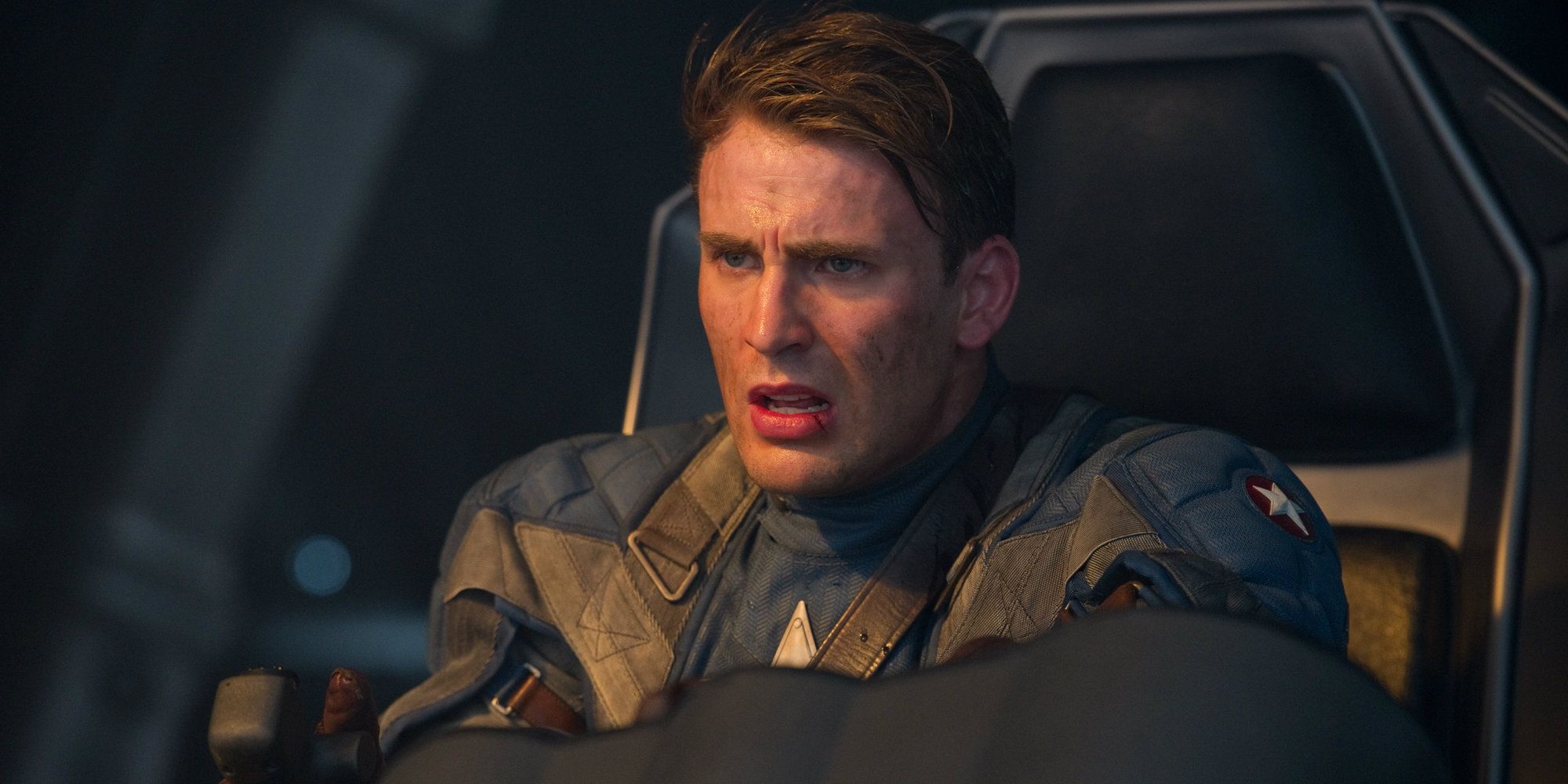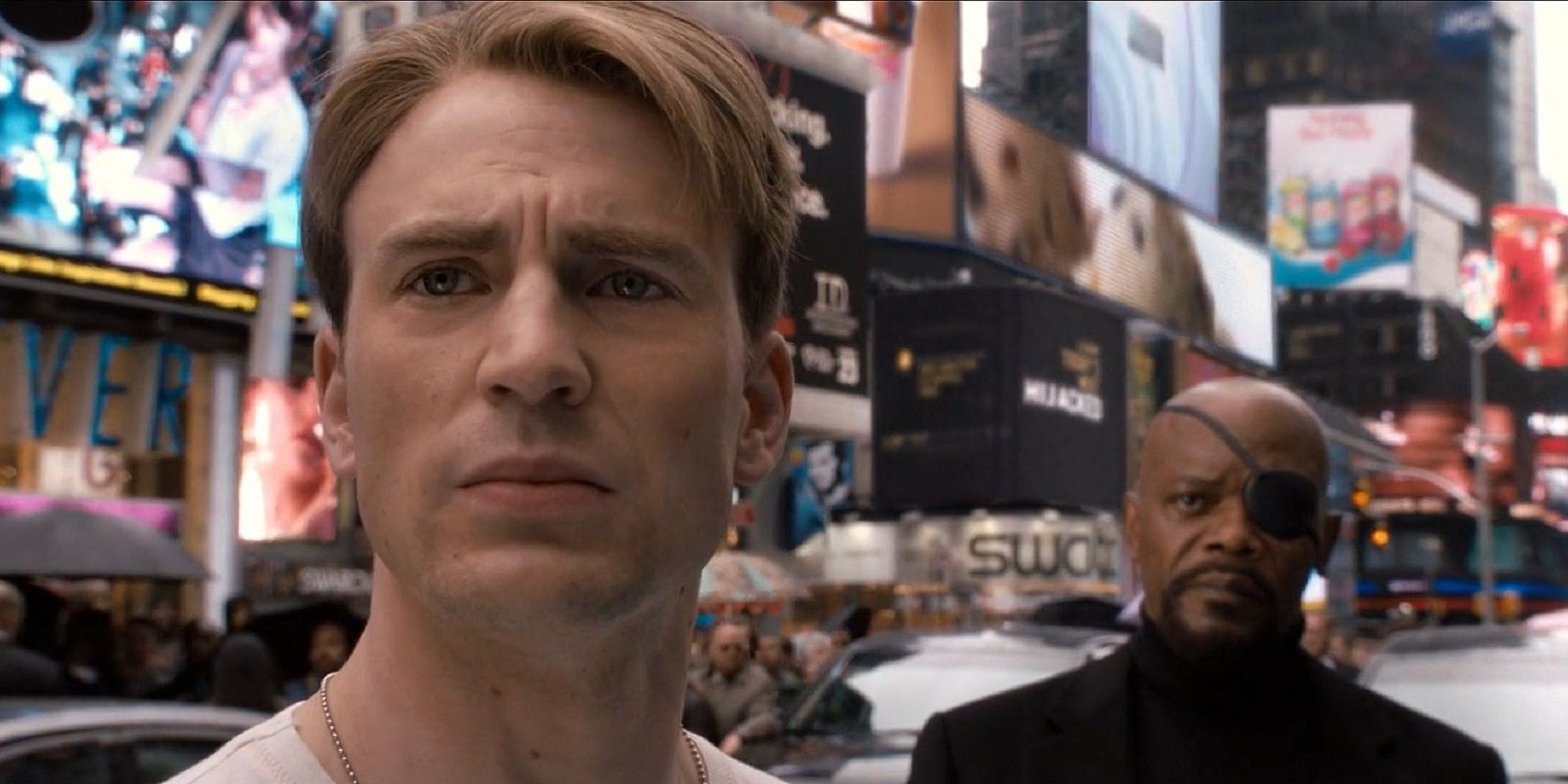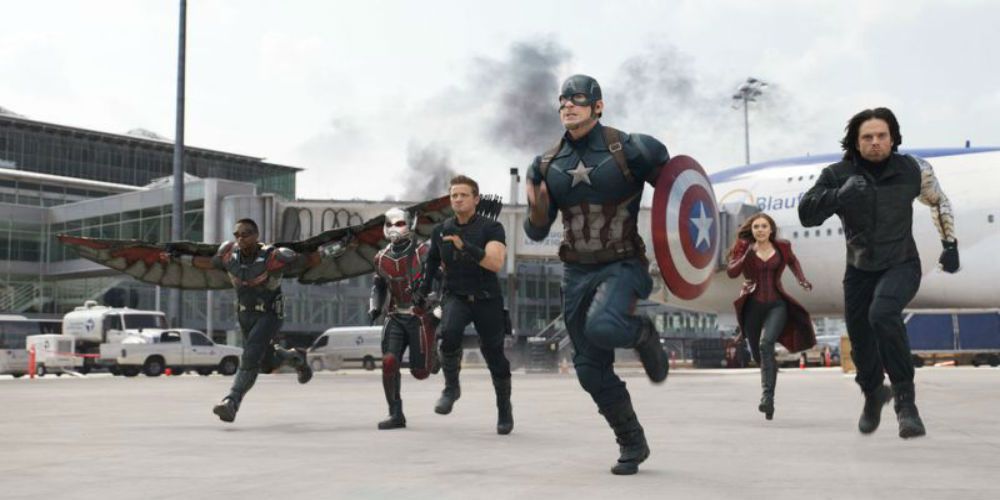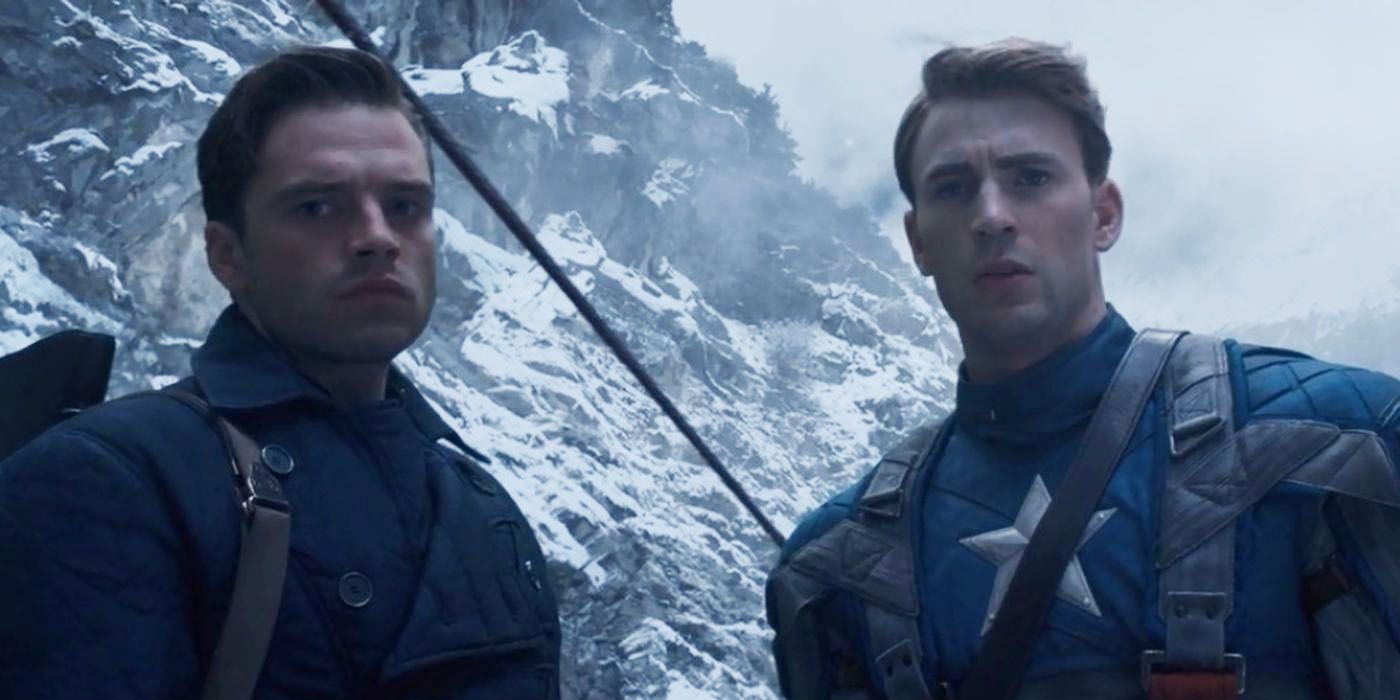The Marvel Cinematic Universe began as Tony Stark’s franchise. The other heroes each had a chance to shine, but Stark was the anchor pulling the whole thing together. However, as soon as the Russo brothers took over the Captain America movies, Steve Rogers became just as important as Stark.
It is the dichotomy between these two characters that has formed the backbone of the MCU for a good few years. It all began when the Russos showed up to get Cap’s solo franchise into shape. Here are 5 Things Captain America’s Solo Trilogy Did Right (And 5 It Did Wrong).
Wrong: Generic origin story
While Captain America: The First Avenger isn’t a terrible movie – it’s actually, all things considered, a pretty good one – there’s no denying that it follows the MCU’s set-menu origin story formula.
We meet Steve Rogers as a young man searching for his purpose. He has an older, wiser mentor figure who offers him the chance to fulfill his destiny. The mentor figure dies, which pushes him to fulfill that destiny. Everything’s going great until a villain shows up with similar powers to Steve and he’s finally met his match. The only non-generic thing about it is the fact that the hero is catapulted into the future at the end.
Right: Cap’s character arc
Captain America’s character arc as a whole lasted until Avengers: Endgame, but there is an internal one in his solo trilogy and it’s terrific. In The First Avenger, Steve is willing to do anything for his government. In The Winter Soldier, that government betrays him and he realizes he can only trust himself.
In Civil War, he actively fights against the government’s attempts to regulate his actions. The final moments of Civil War see Steve arriving at the Raft to break his allies out of prison. There’s no way we could imagine the Steve we first met doing that, yet it doesn’t feel out of character when we see it. That’s what character development looks like.
Wrong: Villains
The Captain America trilogy has never had particularly good villains. Despite Red Skull being Cap’s primary villain in the comics, he just came off as lame in The First Avenger.
It was an intriguing turning of the tables to have Cap’s best friend become the villain in The Winter Soldier, but ultimately, Bucky wasn’t the real villain of that movie; Alexander Pierce was, and he was another generic MCU villain with vague motivations for evil. Finally, Helmut Zemo was woefully underused in Civil War, since the focus was on the Avengers’ animosity towards each other, while his “getting caught was all a part of my plan” schtick has been done a thousand times before.
Right: Steve’s friendship with Sam
When we catch up with Steve Rogers in Captain America: The Winter Soldier, we truly see him as a man out of his time. He’s trying to get by, but it’s not easy, because all of his friends and family are dead and he doesn’t recognize the world. And then he meets Sam Wilson, a fellow vet who is similarly struggling to fit in.
Sam wasn’t frozen for 70 years, but he did go to war and return home to find that he had no place, so the two can relate to each other. Chris Evans and Anthony Mackie have fantastic chemistry and Cap’s solo movies have used this well.
Wrong: Steve’s romance with Sharon
In the years between Cap going into the ice and missing his date with Peggy and his trip back to the ‘40s to spend his whole life with her, Marvel didn’t really know what to do with his romantic arc. So, they put him in a weird, kind of creepy, pseudo-incestuous relationship with Peggy’s great-niece, Sharon.
Fans were never on board with this pairing, and it seems right that the MCU just sort of forgot about it. It’s even worse in retrospect, since we now know that Steve would eventually go back in time, marry Peggy, and technically become Sharon’s great uncle.
Right: Upping the stakes in the second movie
All these years later, Captain America: The Winter Soldier still stands as one of the best movies in the Marvel Cinematic Universe.
It suitably upped the stakes following The First Avenger, with Steve Rogers adjusting to life in the modern world, losing his trust in the government he served (the only thing he had left), and coming face-to-face with the ultimate villain: his childhood best friend who he thought had died 70 years earlier and had been brainwashed by Nazi scientists to assassinate him. The Winter Soldier solidified Cap’s place as one of the MCU’s most well-defined and interesting characters.
Wrong: Third acts (except for Civil War)
The third act of Civil War is spectacular, with the conflict of the movie being stripped down to its essential elements: Tony finding out Bucky killed his parents, Tony wanting revenge, and Cap standing in his way as he’s torn between his best friend and his closest ally.
But the third act of The First Avenger feels rushed in order to get Cap in the ice and send him into the modern day, while the third act of The Winter Soldier takes the paranoid political thriller build-up and tosses it out in favor of an all-too-familiar CGI smash-‘em-up for the final battle.
Right: Final lines of dialogue
The final line of dialogue in a movie is incredibly important, because they’re the words stuck in your head as you leave the theater and head home. The MCU understands this, and it’s never been on finer display than in the Captain America movies. At the end of The First Avenger, Steve finds himself hopelessly confused in 21st century New York and Nick Fury asks him if he’s going to be okay. Steve responds, “Yeah, I just...I had a date.”
His first thought is that he’s missed his chance with Peggy. At the end of The Winter Soldier, Steve tells Sam he doesn’t have to help him look for Bucky and Sam says, “I know. When do we start?” And at the end of Civil War, Steve sends Tony a letter that concludes, “No matter what, I promise you, if you need us, if you need me...I’ll be there.” Powerful stuff.
Wrong: Making Civil War pretty much an Avengers movie
Captain America: Civil War is often referred to as Avengers 2.5, because Iron Man, Black Panther, Hawkeye, Spider-Man, Black Widow, and Scarlet Witch are as much a part of the plot as Cap is. While Civil War is, at heart, still a Captain America movie, it doesn’t feel like a true solo movie in the sense that The Winter Soldier does. Civil War is bigger than Captain America, and that’s its biggest problem.
That story needed to be told – the Avengers had to break up before Thanos showed up, because that’s how Thanos won – but maybe it shouldn’t have been a Cap solo movie. Cap deserved a true closer to his solo trilogy.
Right: Completing the Cap/Bucky arc
The MCU as a whole gives us a rounded portrait of Steve Rogers and a complete, fleshed-out character arc, but the Captain America solo trilogy focused more specifically on his friendship with Bucky.
In the first one, they fought in World War II together and Bucky “died,” spurring Cap on to sacrifice himself. In the second one, Bucky returns as a brainwashed assassin out to kill Cap. In the third one, the Avengers are torn apart and the UN pokes around in superheroes’ business. But despite the epic scale, it still didn’t lose sight of the focus on the Cap/Bucky arc and gave it some closure, which is pretty admirable.

